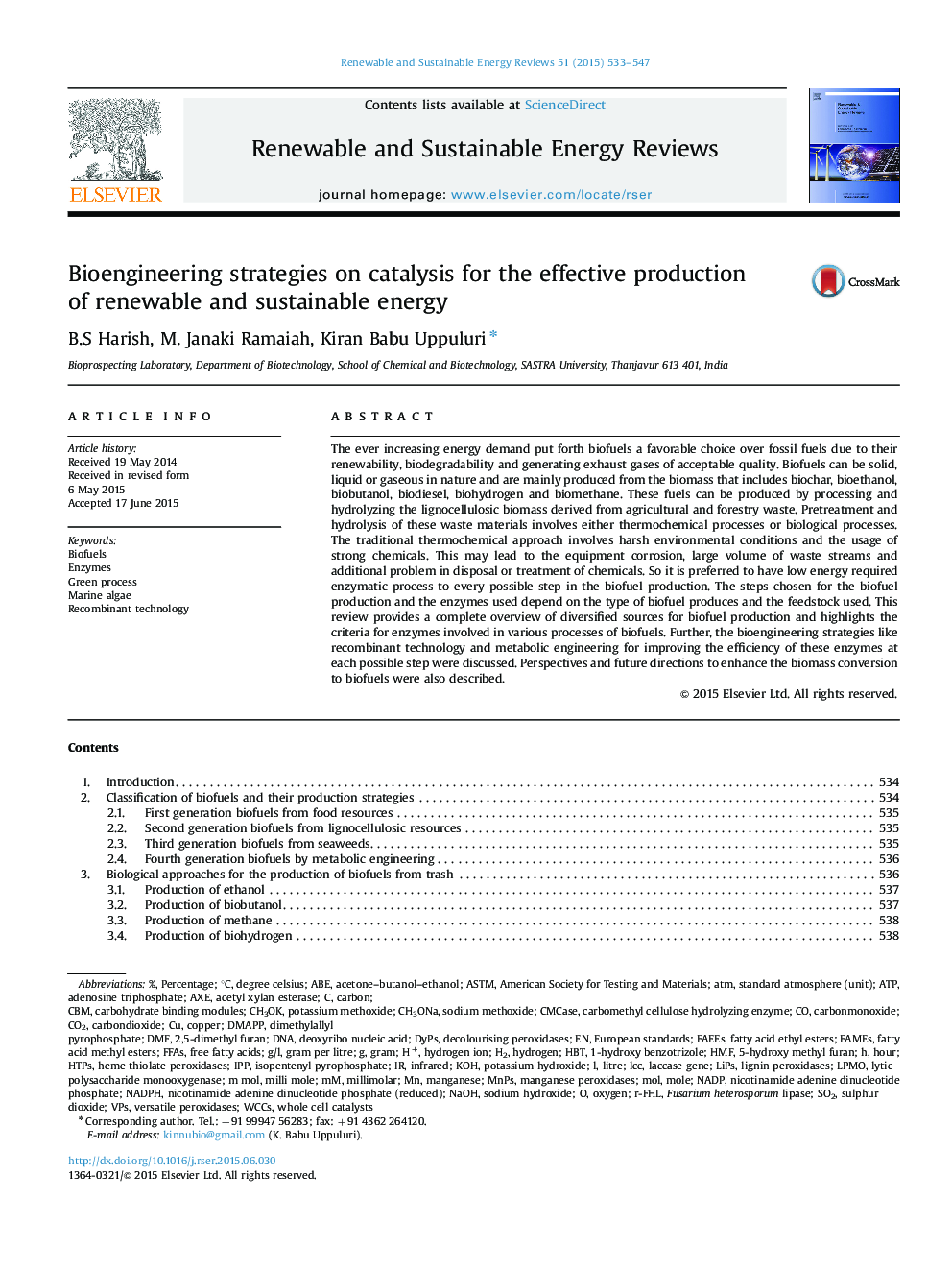| Article ID | Journal | Published Year | Pages | File Type |
|---|---|---|---|---|
| 8115749 | Renewable and Sustainable Energy Reviews | 2015 | 15 Pages |
Abstract
The ever increasing energy demand put forth biofuels a favorable choice over fossil fuels due to their renewability, biodegradability and generating exhaust gases of acceptable quality. Biofuels can be solid, liquid or gaseous in nature and are mainly produced from the biomass that includes biochar, bioethanol, biobutanol, biodiesel, biohydrogen and biomethane. These fuels can be produced by processing and hydrolyzing the lignocellulosic biomass derived from agricultural and forestry waste. Pretreatment and hydrolysis of these waste materials involves either thermochemical processes or biological processes. The traditional thermochemical approach involves harsh environmental conditions and the usage of strong chemicals. This may lead to the equipment corrosion, large volume of waste streams and additional problem in disposal or treatment of chemicals. So it is preferred to have low energy required enzymatic process to every possible step in the biofuel production. The steps chosen for the biofuel production and the enzymes used depend on the type of biofuel produces and the feedstock used. This review provides a complete overview of diversified sources for biofuel production and highlights the criteria for enzymes involved in various processes of biofuels. Further, the bioengineering strategies like recombinant technology and metabolic engineering for improving the efficiency of these enzymes at each possible step were discussed. Perspectives and future directions to enhance the biomass conversion to biofuels were also described.
Keywords
CBMNADPLytic polysaccharide monooxygenaseLPMONADPHDMAPPIPPManganese peroxidasesVPSASTMFAEEsLCCFFAsHMFABENaOHKOHg/LLIPsLaccase geneCMCase2,5-Dimethyl furanCarbonmonoxidedeoxyribo nucleic acidDMFDNAMNPs°CAdenosine TriphosphateATPEnzymesFatty Acid ethyl estersEuropean standardsacetone–butanol–ethanolAcetyl xylan esteraseFree fatty acidsOxygenisopentenyl pyrophosphateAxeAmerican society for testing and materialsMarine algaeATMdegree celsiusPercentageHBTcarbondioxideSulphur dioxideSO2dimethylallyl pyrophosphateHourBiofuelsFAMEsRecombinant technologyLitreInfraredMolecarbohydrate binding modulesPotassium methoxideSodium methoxidefatty acid methyl estersCopperManganeseMolmillimolarnicotinamide adenine dinucleotide phosphatenicotinamide adenine dinucleotide phosphate (reduced)Hydrogensodium hydroxidePotassium HydroxideGreen processCarbonCO2Gramhydrogen ion
Related Topics
Physical Sciences and Engineering
Energy
Renewable Energy, Sustainability and the Environment
Authors
B.S Harish, M. Janaki Ramaiah, Kiran Babu Uppuluri,
